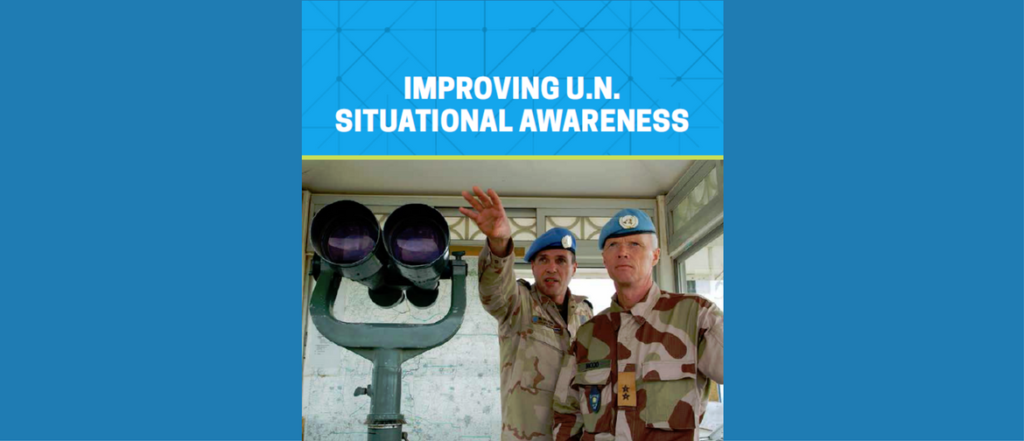The United Nations (U.N.) is mandated and resourced to prevent and respond to mass human suffering caused by conflict, natural disaster, and disease. Yet it is often criticized for failing to act in a timely way. There are many structural, political, and practical reasons for these failures, and the solutions are not easy. One important remedy lies in improving the U.N.’s situational awareness — that is, its knowledge, understanding, and anticipation of a situation or event. Improved situational awareness cannot force U.N. decision makers to take more potent action, but it can enable earlier and more informed decision making and remove one important cause of late and inadequate response. In addition to promoting more timely and effective U.N. actions, better situational awareness is also critical for ensuring the safety and security of U.N. personnel.
The need for improved situational awareness is clear. In the aftermaths of several major failures, the U.N. commissioned experts to review its actions. In each of the reviews, poor situational awareness was identified as a reason for failure, and improvements were recommended. While successive Secretaries-General made efforts to implement such recommendations, they were often frustrated by both political and practical constraints. U.N. member states repeatedly declined to provide sufficient resources, resulting in the establishment of ad hoc capacities, and internal fragmentation undermined efforts to develop a coherent system.
This report offers pragmatic recommendations to improve U.N. situational awareness, cognizant of the constraints that have undermined past attempts. It begins by defining and explaining key concepts (situational awareness, intelligence, early warning, etc.). It then examines the need for improved situational awareness, comparing the U.N. with national systems, and considers the fate of past reform efforts. The report goes on to map out existing situational awareness entities and processes within the U.N. before analyzing the opportunities and challenges involved in improving U.N. situational awareness. Finally, it offers recommendations for the establishment of a U.N. situational awareness system.

